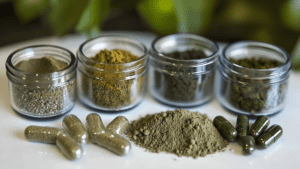Everything You Need to Know About Kratom Merchant Accounts
Kratom, scientifically known as Mitragyna speciosa, is a tropical evergreen native to Southeast Asia. For centuries, Kratom has been used in traditional medicine to relieve musculoskeletal pain, increase energy, appetite, and even heal wounds.
The Kratom Industry’s “High Risk” Classification Explained
When it comes to credit card processing, high risk refers to businesses for which traditional payment processors have a higher likelihood of incurring financial losses. This stems from high chargeback rates, an increased potential for fraud, uncertain regulatory environments, and reputational concerns specific to the industry.
Legal Ambiguity and Varying Regulations
Kratom’s legal status in the U.S. is complex and inconsistent across state lines. While kratom is not federally regulated as a controlled substance, the Drug Enforcement Administration (DEA) lists it as a “Drug and Chemical of Concern.”
State laws vary, with some states permitting sales (sometimes with age restrictions or under a Kratom Consumer Protection Act – KCPA), others imposing outright bans, and some being a mix of both.
Because of a lack of uniform oversight and shifting state-level rules, payment processors are skeptical of providing services for kratom merchants, which is why it’s crucial to work with a company like Limitless Payment Solutions for your kratom merchant account needs.
FDA Stance
The U.S. Food and Drug Administration (FDA) classifies kratom as an unapproved new dietary ingredient.
The FDA states that kratom is not lawfully marketed in the U.S. as a drug product, dietary supplement, or food additive, and warns consumers about potential adverse effects, including liver toxicity, seizures, and substance use disorder, citing a lack of clinical trials proving efficacy and safety.
Potential for Chargebacks
Kratom merchants often deal with higher rates of chargebacks due to customer disputes, issues with product quality, or friendly fraud. Since many kratom merchants sell their products online, this becomes a bigger risk in the eyes of traditional credit card processors.
Reputational Risks
Due to the legal ambiguities, FDA warnings, and public perception issues often associated with kratom, many financial institutions consider working with kratom businesses as a reputational risk.
Challenges with Standard Payment Processors
Many kratom businesses, especially those new to the market, might initially consider using standard, low-risk payment processors like PayPal, Stripe, or Square due to their ease of setup and widespread recognition.
These mainstream processors typically have strict terms of service that explicitly prohibit businesses operating in industries they deem high risk, and kratom almost always falls into that category.
Attempting to use these platforms for kratom sales leads to account terminations and frozen bank accounts.
Why Do You Need a High Risk Merchant Account for your Kratom Business?
Unlike their low-risk counterparts, high risk payment processors understand the specific risks associated with the kratom industry.
Key advantages of partnering with a dedicated high risk kratom merchant account payment processor includes:
- Upfront and Thorough Underwriting
- Account Stability
- Specialized Support
- Access to Risk Management Tools
The right high risk merchant account acts as a buffer against many industry-specific financial and regulatory risks.
Documentation for a Kratom High Risk Merchant Account
To facilitate a smooth and timely approval process, kratom businesses should be prepared to submit a range of documentation.
While specific requirements may vary slightly between processors, the following are commonly requested:
- Articles of incorporation or organization, partnership agreements, or sole proprietorship registration.
- A valid local or state business license.
- A copy of the IRS letter assigning the EIN.
- A clear, valid government-issued photo ID (e.g., driver’s license or passport) for all principal owners.
- Voided Business Check or Bank Letter
- Business Bank Statements
- A fully operational website with clear product descriptions (avoiding unapproved health or drug claims 11), comprehensive terms of service, a privacy policy, shipping and refund policies, and robust age verification mechanisms
- A clear explanation of the business model, marketing strategies, and sales channel



